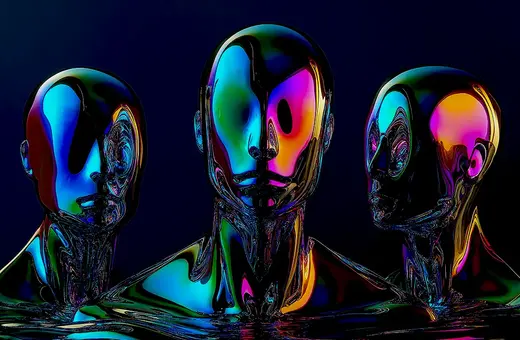We make myths whenever we make technology. To assert that the telegraph would bring world peace, that the telephone would speed gender equality, that radio would end war, and if not radio, then television, was to make a myth of communication technology. Today, myths about technology anchor sublime visions contained in the promise of using digital systems to extend life, even achieve immortality, in what mythmakers call the Singularity, the merging of humans and machines. Inspired especially by the Internet of Things, another mythology is taking hold: the ability to make things come alive. They are both key myths propelling the Next Internet and masking the significant social problems facing citizens in the digital world.
The concept of the Singularity has been around in one form or another since the 1950s when the polymath John van Neumann used the term to describe a process whereby machines equipped with artificial intelligence enter an accelerated learning phase to produce a superintelligence. The computer scientist, inventor, and a director of engineering at Google, Raymond Kurzweil, is most responsible for popularizing the term, gaining notoriety for insisting that if humans take full advantage of this development, they can achieve immortality. It all certainly sounds like the stuff of science fiction but proponents are very serious and supporters, including some of Silicon Valley’s elite, are investing large sums to help make it happen. These include Kurzweil’s employer Google, which in 2013 injected a billion dollars into a secretive anti-aging project, Google Calico, that received the enthusiastic support of the company’s founders Sergey Brin and Larry Page. In 2017 the founder and CEO of Tesla and SpaceX, Elon Musk, in spite of his professed fear and public warnings about the dangers of artificial intelligence, set up a new company called Neuralink that works on brain implants it hopes will some day connect human brains with AI systems. Much of this thinking is based on new developments in syringe-injectible electronics, whose supporters believe that the brain-machinery connection can be made minimally invasive by using wireless technology rather than, for example, a suppurating, infection-prone piercing of the skull. The research arm of the Defense Department, always on the lookout for the latest in cyber-technologies that might produce the next generation of transhuman warriors, is also investing in the direct brain-machine connection.
Kurzweil’s ideas received additional affirmation in 2017 when the best-selling historian Yuval Noah Harari published a book with the less than subtle title Homo Deus. Harari makes the case that within a century technologies will fundamentally transform the human race into god-like creatures powered by artificial intelligence and a host of technologies that emerge from a revolution he calls dataism. To be fair, Harari recognizes that this vision can all too easily be turned into a religion of technology. Nevertheless, he fully embraces the vital core that underlies his concerns. When asked if people should resist a future of seemingly inevitable technological advancement and create a different futurism, he is quick to reply: “You can’t stop technological progress.”
Whether or not, as Kurzweil insists, “the Singularity is near,” and whether or not the entire project has scientific warrant, as myth it tells a compelling story: technology, especially digital technology, is powerful, benign, and irresistible. One can understand why this would appeal to Silicon Valley leaders and their gurus. The merger of people and machines, whether it is called the Singularity or transhumanism, supports practically everything Big Tech stands for.



















Join the conversation